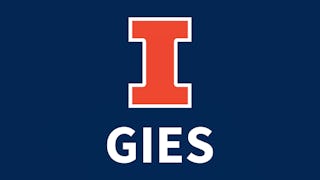In diesem Kurs lernen Sie die Grundlagen der Unternehmensfinanzierung kennen. Basierend auf den Vorbereitungskursen für Wharton MBA-Studenten hat Professor Jessica Wachter diesen Kurs für Lernende konzipiert, die eine Auffrischung der Finanzkonzepte benötigen oder für diejenigen, die sich zum ersten Mal mit Unternehmensfinanzierung beschäftigen. Sie lernen die grundlegenden Konzepte der Unternehmensfinanzierung kennen, wie z.B. Kapitalwert, Zinseszins und einfache Zinsen sowie Annuitäten im Vergleich zu Ewigkeitsrenten. Sie werden auch lernen, wie Sie das NPV-Rahmenwerk zur Berechnung der Bewertung von festverzinslichen Wertpapieren und Eigenkapital anhand von hypothetischen Beispielen von Unternehmensprojekten anwenden können. Am Ende dieses Kurses werden Sie Ihre Fähigkeiten bei der Berechnung von Risiko und Rendite zur Optimierung von Investitionen verfeinert haben und in der Lage sein, die richtigen Finanzinformationen zu bewerten, um bessere Renditen für Ihr Unternehmen zu erzielen.

Genießen Sie unbegrenztes Wachstum mit einem Jahr Coursera Plus für 199 $ (regulär 399 $). Jetzt sparen.

Grundlagen der Finanzen
Dieser Kurs ist Teil von Spezialisierung für Einführung in das Finanz- und Rechnungswesen

Dozent: Jessica Wachter
123.849 bereits angemeldet
Bei enthalten
(1,101 Bewertungen)
Kompetenzen, die Sie erwerben
- Kategorie: Unternehmensfinanzierung
- Kategorie: Finanzverwaltung
- Kategorie: Risikoanalyse
- Kategorie: Finanzen
- Kategorie: Investitionen
- Kategorie: Cashflows
- Kategorie: Aktien
- Kategorie: Portfolio Management
- Kategorie: Rentabilität der Investition
- Kategorie: Finanzielle Analyse
- Kategorie: Kapitalbudgetierung
- Kategorie: Finanzmarkt
- Kategorie: Bewertung von Unternehmen
- Kategorie: Wirtschaftsmathematik
- Kategorie: Wertpapiere (Finanzen)
Wichtige Details

Zu Ihrem LinkedIn-Profil hinzufügen
9 Aufgaben
Erfahren Sie, wie Mitarbeiter führender Unternehmen gefragte Kompetenzen erwerben.

Erweitern Sie Ihre Fachkenntnisse
- Lernen Sie neue Konzepte von Branchenexperten
- Gewinnen Sie ein Grundverständnis bestimmter Themen oder Tools
- Erwerben Sie berufsrelevante Kompetenzen durch praktische Projekte
- Erwerben Sie ein Berufszertifikat zur Vorlage

In diesem Kurs gibt es 5 Module
Dieses Modul wurde entwickelt, um Ihnen grundlegende Kenntnisse der Unternehmensfinanzierung und des Kapitalwerts (NPV) zu vermitteln. Sie werden die Definition des Barwerts und des NPV kennenlernen, erfahren, warum er funktioniert und wie man den NPV berechnet. Sie lernen Schlüsselkonzepte wie das Trennungs-Theorem kennen und erfahren, ob Unternehmen die gleichen Regeln für den Kapitalwert befolgen sollten wie Privatpersonen und welche Annahmen bei der Berechnung des Kapitalwerts sinnvoll sind. Sie werden den Zinseszins mit dem einfachen Zins vergleichen, wichtige Konzepte wie Annuitäten und Ewigkeiten definieren und den effektiven Jahreszinssatz (APR) und den effektiven Jahreszinssatz (EAR) analysieren. Am Ende dieses Moduls werden Sie ein besseres Verständnis der grundlegenden Konzepte der Unternehmensfinanzierung sowie ein breiteres Wissen über die Faktoren erlangen, die bei den wichtigsten Entscheidungen eines Unternehmens eine Rolle spielen.
Das ist alles enthalten
8 Videos6 Lektüren2 Aufgaben
In diesem Modul werden Sie die Bewertung von festverzinslichen Wertpapieren untersuchen und sich näher mit der Renditekurve befassen. Anhand der grundlegenden Definition von Anleihen werden Sie in der Lage sein, Nullkuponanleihen zu identifizieren und die Rendite dieser Anleihen zu berechnen. Sie werden auch die Unterschiede zwischen der Rendite bis zur Fälligkeit und der Rendite über die Haltedauer erörtern, Ihre Anlagen bewerten und die Frage beantworten können: "Was bedeutet Kapitalrendite?" Durch die Analyse der Renditekurve werden Sie die Opportunitätskosten für den Erhalt von Geld zu verschiedenen Zeitpunkten in der Zukunft einschätzen und Investitionen genau bewerten können. Am Ende dieses Moduls werden Sie in der Lage sein, zu beschreiben, was eine Anleihe und eine Nullkuponanleihe ist, die Rendite dieser Anleihen zu berechnen und eine Renditekurve zu berechnen, um den Wert Ihrer Anlagen besser einschätzen zu können.
Das ist alles enthalten
6 Videos4 Lektüren2 Aufgaben
In diesem Modul werden Sie untersuchen, wie Sie den Wert von Aktien mit Hilfe von Barwertmethoden bestimmen können. Sie werden definieren, was Eigenkapital ist und den wichtigen Unterschied zwischen festverzinslichen Wertpapieren, wie z.B. Anleihen, und dem Cashflow von Aktien verstehen lernen. Sie werden den Standardansatz bei der Bewertung von Aktien durch ihren Cashflow kennenlernen und erfahren, wie das Prinzip der Verwendung von Multiplikatoren (z.B. Kurs-Gewinn-Verhältnis) zur Bewertung von Aktien auf der Bewertung von Aktien als Strom von Cashflows beruht. Am Ende dieses Moduls werden Sie die theoretischen Grundlagen für die Anwendung der Aktienbewertung besser verstehen und Modelle zur Bestimmung des Dividendenwachstums erstellen.
Das ist alles enthalten
3 Videos4 Lektüren2 Aufgaben
Dieses Modul soll Ihnen den Unterschied zwischen dem Kapitalwert und dem internen Zinsfuß (IRR) verdeutlichen. Sie werden zunächst den Internen Zinsfuß und seinen Vergleich mit dem NPV erkunden und dann einige der gängigen Annahmen über den IRR entlarven, die bei näherer Betrachtung unrealistisch erscheinen mögen. Anhand von hypothetischen Projektbeispielen werden Sie die Werte von NPV und IRR vergleichen und herausfinden, was zu tun ist, wenn sie übereinstimmen oder nicht übereinstimmen. Am Ende dieses Moduls werden Sie den Unterschied zwischen NPV und IRR besser verstehen und in der Lage sein, bei wichtigen Entscheidungen in Ihrem Unternehmen zu entscheiden, welchen Wert Sie akzeptieren oder ablehnen müssen.
Das ist alles enthalten
4 Videos2 Lektüren2 Aufgaben
Dieses Modul enthält zusätzliche Kursthemen im Zusammenhang mit den Grundlagen der Finanzen
Das ist alles enthalten
9 Lektüren1 Aufgabe
Erwerben Sie ein Karrierezertifikat.
Fügen Sie dieses Zeugnis Ihrem LinkedIn-Profil, Lebenslauf oder CV hinzu. Teilen Sie sie in Social Media und in Ihrer Leistungsbeurteilung.
Dozent

Mehr von Finanzen entdecken
 Status: Kostenloser Testzeitraum
Status: Kostenloser TestzeitraumUniversity of Pennsylvania
 Status: Kostenloser Testzeitraum
Status: Kostenloser TestzeitraumUniversity of California, Irvine
 Status: Vorschau
Status: VorschauUniversity of Illinois Urbana-Champaign
 Status: Kostenloser Testzeitraum
Status: Kostenloser TestzeitraumRice University
Warum entscheiden sich Menschen für Coursera für ihre Karriere?




Bewertungen von Lernenden
1.101 Bewertungen
- 5 stars
51,13 %
- 4 stars
20,43 %
- 3 stars
11,62 %
- 2 stars
6,72 %
- 1 star
10,08 %
Zeigt 3 von 1101 an
Geprüft am 26. Apr. 2022
Great course, easy simple explanation. Would be great if after every assignment we can have access to solutions as questions are challenging. Otherwise a good course for a beginner.
Geprüft am 23. Jan. 2021
Helpful course with clear lectures by Dr. Wachter. The quizzes were a bit frustrating in their specific formatting requirements.
Geprüft am 12. Dez. 2021
Some exercises could use a few hints, aside from that looks very good. The notes are good even for someone who is very rusty in algebra.
Häufig gestellte Fragen
Um Zugang zu den Kursmaterialien und Aufgaben zu erhalten und um ein Zertifikat zu erwerben, müssen Sie die Zertifikatserfahrung erwerben, wenn Sie sich für einen Kurs anmelden. Sie können stattdessen eine kostenlose Testversion ausprobieren oder finanzielle Unterstützung beantragen. Der Kurs kann stattdessen die Option "Vollständiger Kurs, kein Zertifikat" anbieten. Mit dieser Option können Sie alle Kursmaterialien einsehen, die erforderlichen Bewertungen abgeben und eine Abschlussnote erhalten. Dies bedeutet auch, dass Sie kein Zertifikat erwerben können.
Wenn Sie sich für den Kurs einschreiben, erhalten Sie Zugang zu allen Kursen der Spezialisierung, und Sie erhalten ein Zertifikat, wenn Sie die Arbeit abgeschlossen haben. Ihr elektronisches Zertifikat wird Ihrer Seite "Leistungen" hinzugefügt - von dort aus können Sie Ihr Zertifikat ausdrucken oder Ihrem LinkedIn-Profil hinzufügen.
Ja. Für ausgewählte Lernprogramme können Sie eine finanzielle Unterstützung oder ein Stipendium beantragen, wenn Sie die Anmeldungsgebühr nicht aufbringen können. Wenn für das von Ihnen gewählte Lernprogramm eine finanzielle Unterstützung oder ein Stipendium verfügbar ist, finden Sie auf der Beschreibungsseite einen Link zur Beantragung.
Weitere Fragen
Finanzielle Unterstützung verfügbar,





